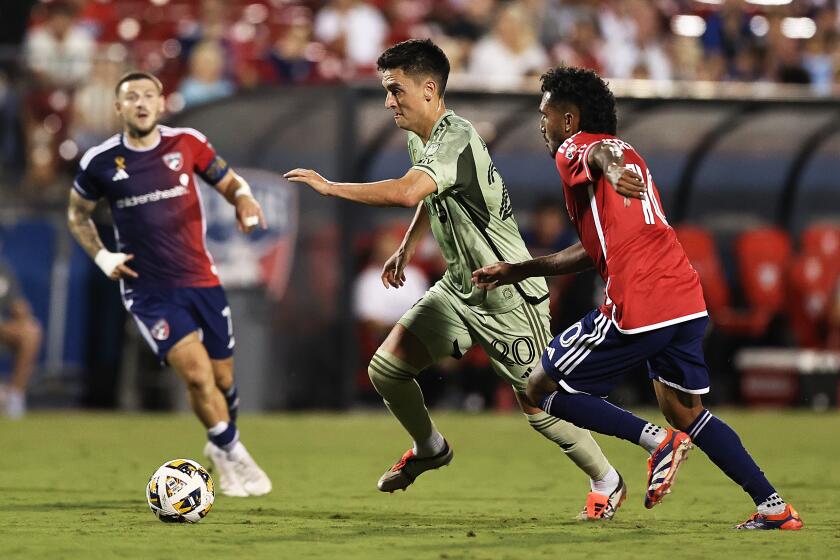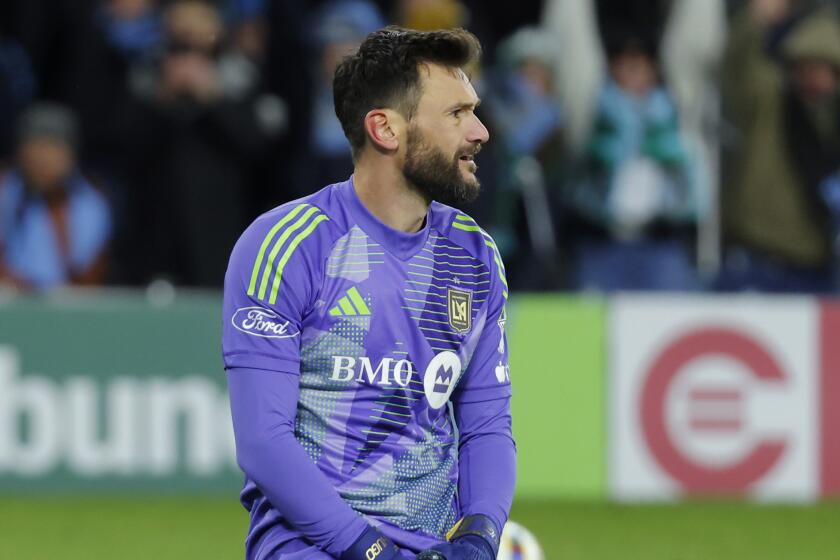<i>Arrivederci.</i> Italy out of World Cup
Marcello Lippi had been warned this might happen. He had been told time and again by Italian fans and the Italian media that his team was too old, that it needed some younger, hungrier players.
Take Inter Milan’s Mario Balotelli or Davide Santon, they said. Take Sampdoria’s Antonio Cassano, they pleaded. Take anyone but that old gang of yours, they insisted.
But Lippi ignored all the warnings and all the advice, and on Thursday evening in Johannesburg, he paid the price.
When referee Howard Webb blew the final whistle at Ellis Park, the scoreboard showed one of the World Cup’s all-time remarkable results: Slovakia 3, Italy 2.
A team playing in its first World Cup, a team made up largely of players who were unknown internationally, had defeated the defending world champions and, in doing so, had knocked them out of the World Cup.
The final line on Italy: No wins, one loss, two ties.
Arrivederci, Marcello.
Coming just days after France had been sent home with its tail firmly between its legs, it marked the first time in World Cup history that the previous tournament’s two finalists had been eliminated at the first hurdle.
The moment had Italian goalkeeper Gianluigi Buffon holding his head in his hands in disbelief. Buffon had to watch the match in growing frustration from the bench after being sidelined by a back injury in the opener.
On the field, forward Fabio Quagliarella was in tears. Lippi was too angry or embarrassed to stick around. He stalked off the field and into the waiting torture of the postgame press conference.
Once there, he regained his composure and his dignity. Unlike his French counterpart, Raymond Domenech, Lippi was ready to accept the blame.
“I take full responsibility,” he said. “If the squad went out with fear in their legs and hearts, it means the coach did not prepare the match well tactically or psychologically.”
Or perhaps it was simply a combination of relying too much on the players who had won the World Cup for him in 2006. No fewer than nine of the 23 men on the Azzurri roster are 30 or older.
“We were a disappointment and everyone saw it,” Buffon said. “The difference between 2006 and 2010 is that there are no longer enough players” such as AS Roma forward Francesco Totti and Juventus forward Alessandro Del Piero.
Italy exhibited none of its customary swagger going into the match. That had drained away in back-to-back 1-1 ties against Paraguay and New Zealand. The fact is, the Azzurri were aware that they could be beaten.
“We’re worried,” midfielder Daniele De Rossi said before the match. “I said it before and I’ll say it again: If we don’t make it past the first round, it would be a failure. If we can’t win, we don’t deserve to advance.”
That’s exactly what happened, and it was the first time in 36 years that Italy had bowed out in the first round.
“Going home in shame,” said the headline in La Gazzetta dello Sport, but that judgment was harsh. Italy was not shamed, merely defeated. The younger legs and fresher minds on Slovakia made the difference.
“We played with our hearts,” said forward Robert Vittek, who scored two of Slovakia’s goals.
Lippi will be stepping aside now, with Cesare Prandelli set to take over as national team coach and prepare the Azzurri for their run to Euro 2012 in Poland and Ukraine.
“I hope he’s got his ideas in order because the current situation of Italian football isn’t great,” Buffon said.
Slovakian football, meanwhile, has never been better.
“After the birth of my son, it’s the second best day of my life,” said Slovakia’s Coach Vladimir Weiss, who was a starter on the Czechoslovakia team that routed the U.S., 5-1, in the 1990 World Cup in Italy.
Twenty years ago is ancient history in soccer. Just look at the U.S. team then and now. For Italy, it is time to regroup and rebuild, time to consign the previous generation to its place in history.
Old warhorses such as defender Fabio Cannavaro and midfielder Gennaro Gattuso already have announced their retirement. Others will surely follow.
Meanwhile, Lippi’s final words will echo long down the cold marble corridors of Italian soccer.
“I didn’t think we could win the World Cup,” he admitted, “but I thought we would do better.”




